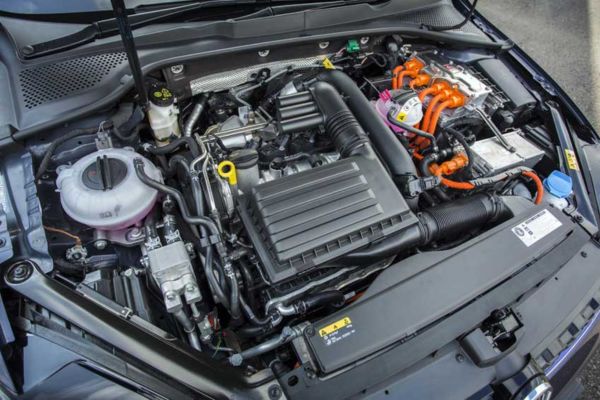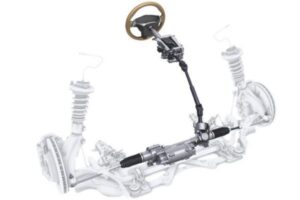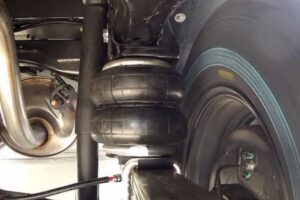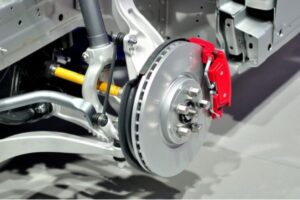Introduction
The automotive industry has experienced a significant shift towards environmentally friendly transportation solutions. One such innovation that has captured attention is the emergence of hybrid engines. By combining traditional combustion engines with electric power, hybrid engines offer a unique blend of technology and sustainability. In this article, we will explore how hybrid engines are impelling the future of mobility while maintaining a focus on power, efficiency, and environmental consciousness.
Hybrid Engines: Propelling the Mobility of the Future
In recent years, the demand for cleaner and more fuel-efficient vehicles has grown exponentially. As a response, automakers have turned to hybrid engines as a viable solution. These engines enable vehicles to operate on both conventional fuels and electricity, presenting an efficient alternative to solely relying on internal combustion engines. By integrating electric motors, hybrid engines provide an extended driving range while reducing emissions.
The Benefits of Hybrid Engines
Hybrid engines offer numerous advantages that make them a compelling choice for consumers and the environment alike. Here are some key benefits:
- Improved Fuel Efficiency: By utilizing electric power, hybrid engines achieve higher fuel efficiency compared to traditional engines. This feature results in cost savings for drivers and reduces dependency on fossil fuels.
- Lower Emissions: Hybrid engines significantly reduce greenhouse gas emissions and air pollutants. The electric power component diminishes tailpipe emissions, contributing to cleaner air quality and a greener environment.
- Regenerative Braking: A unique feature of hybrid engines is regenerative braking, which allows the vehicle to convert kinetic energy into electric energy. This energy is then stored in the battery and used to power the electric motor, increasing overall efficiency.
Hybrid Engines in Action
The automotive industry has embraced the potential of hybrid engines, leading to the development of various hybrid models. Let’s explore a few notable examples:
- Toyota Prius: The Toyota Prius is widely recognized as one of the pioneers of hybrid technology. Its combination of a gasoline engine and electric motor has revolutionized the automotive market and set the stage for other manufacturers to follow suit.
- Chevrolet Volt: The Chevrolet Volt showcases the capabilities of plug-in hybrid engines. With its extended electric range, it provides a significant reduction in fuel consumption for daily commutes while offering the flexibility of a gasoline engine for longer trips.
- Tesla Model S: Tesla, a leader in electric vehicles, introduced the Model S, which can be equipped with a dual-motor configuration, effectively making it an all-wheel-drive electric car. This technological advancement demonstrates the potential of hybrid technologies beyond conventional combustion engines.
Unveiling the Secrets of Hybrid Engines: A Powerful Combination
Hybrid engines operate through a sophisticated integration of combustion engines and electric motors. Let’s delve into the inner workings of these engines to understand their power and efficiency.
The Dual Power Source
Hybrid engines rely on two primary power sources: the internal combustion engine (ICE) and an electric motor. These power sources can work independently or together, depending on the driving conditions and power requirements. The ICE provides propulsion during high-load situations, such as highway driving, while the electric motor assists during low-load conditions, such as city commuting.
Powertrain Control and Optimization
The key to maximizing the efficiency of hybrid engines lies in the sophisticated control systems. These systems monitor various parameters, including vehicle speed, battery charge level, and driver inputs. By continuously analyzing this data, the powertrain control module determines the optimal balance between the ICE and electric motor, ensuring optimal performance and efficiency.
Battery Technology and Energy Storage
Hybrid engines rely on advanced battery technology to store and release electrical energy. Lithium-ion batteries are commonly used in hybrid vehicles due to their high energy density and durability. These batteries are charged through regenerative braking and the ICE, ensuring a constant supply of electric power when needed.
Challenges and Future Developments
While hybrid engines have proven to be a significant step towards sustainable transportation, there are still challenges to overcome. One such challenge is the cost of hybrid vehicles, which tends to be higher than traditional gasoline-powered vehicles due to the added technology and battery costs. However, as technology advances and production scales increase, these costs are gradually decreasing.
The automotive industry is continuously researching and developing new solutions to improve hybrid engines further. Some potential future developments include:
- Advanced Battery Technologies: Research is underway to develop batteries with higher energy densities, longer lifespans, and faster charging capabilities. These advancements will increase the efficiency and range of hybrid vehicles.
- Hydrogen Fuel Cells: Hydrogen fuel cell technology presents another avenue for sustainable transportation. In the context of hybrid engines, hydrogen fuel cells can serve as a supplementary power source, enhancing the overall efficiency and reducing emissions even further.
- Vehicle-to-Grid (V2G) Integration: V2G technology allows hybrid vehicles to not only draw power from the grid but also feed excess energy back into it. This two-way flow of electricity can stabilize the electrical grid and enhance the overall energy ecosystem.
- Autonomous Driving and Hybridization: The combination of autonomous driving and hybrid engines could lead to even greater fuel efficiency. With self-driving capabilities, vehicles can optimize power distribution and driving patterns, further reducing fuel consumption.
Hybrid Engines: A Solution for a Cleaner and Economical World
As global concerns regarding climate change and environmental impact continue to escalate, hybrid engines provide a viable solution for a cleaner and more economical future. Let’s explore how these engines contribute to a sustainable world.
Reduced Carbon Footprint
Hybrid engines play a crucial role in reducing carbon emissions. By combining electric power with conventional engines, they minimize the reliance on fossil fuels and decrease the carbon footprint of transportation. This reduction in emissions positively impacts air quality and mitigates the adverse effects of climate change.
Energy Efficiency and Resource Conservation
The integration of electric power in hybrid engines enhances energy efficiency. The ability to regenerate energy during braking and operate on electric power during low-load conditions optimizes fuel consumption. Consequently, this not only reduces the demand for fossil fuels but also conserves valuable energy resources.
Government Incentives and Policies
To promote the adoption of hybrid vehicles, governments around the world have implemented various incentives and policies. These include tax credits, rebates, and preferential treatment in terms of toll exemptions and parking benefits. Such initiatives encourage consumers to choose hybrid engines, ultimately contributing to a cleaner and more sustainable transportation landscape.
Sustainable Urban Planning
Hybrid engines also support sustainable urban planning initiatives. As cities worldwide grapple with traffic congestion and pollution, hybrid vehicles offer a way to reduce emissions and improve air quality within urban centers. Coupled with the growth of charging infrastructure, hybrid engines facilitate the transition to more sustainable and cleaner transportation options.
Environmental Innovation: How Hybrid Engines are Transforming the Automotive Sector
The integration of hybrid engines into the automotive industry has resulted in significant transformations. Let’s explore the environmental innovations triggered by hybrid engines in the sector.
Advancements in Electric Vehicle Technology
Hybrid engines have propelled the development of electric vehicle (EV) technology. The knowledge gained from integrating electric motors into hybrid systems has paved the way for the production of fully electric vehicles. This shift towards EVs offers a zero-emission transportation solution, revolutionizing the way we travel and reducing our reliance on traditional combustion engines.
Research and Development for Sustainable Solutions
The emergence of hybrid engines has encouraged automakers to invest in research and development for sustainable solutions. This focus on environmental innovation has led to advancements in battery technology, motor efficiency, and lightweight materials. As a result, we witness the constant evolution of hybrid engines and their subsequent impact on the overall automotive industry.
Eco-Friendly Manufacturing Practices
Hybrid engines have also prompted manufacturers to adopt eco-friendly manufacturing practices. From using recycled materials to implementing sustainable production processes, automakers are increasingly striving to reduce their environmental footprint. This commitment to sustainability extends beyond the vehicles themselves and encompasses the entire production lifecycle.
Changing Consumer Attitudes
The adoption of hybrid engines has influenced consumer attitudes towards sustainability and transportation. As more consumers recognize the benefits of hybrid vehicles, they become more conscious of their environmental impact. This shift in mindset encourages individuals to embrace eco-friendly transportation options, fostering a greener automotive landscape.
Conclusion
The rise of hybrid engines marks a significant milestone in the automotive sector, blending technology and sustainability seamlessly. With their ability to provide power, efficiency, and reduced environmental impact, hybrid engines are driving the mobility of the future. As further advancements continue to shape this technology, we can look forward to a cleaner, more economical, and environmentally conscious transportation landscape. The transformative potential of hybrid engines extends beyond individual vehicles and plays a vital role in the pursuit of a sustainable and greener world.



